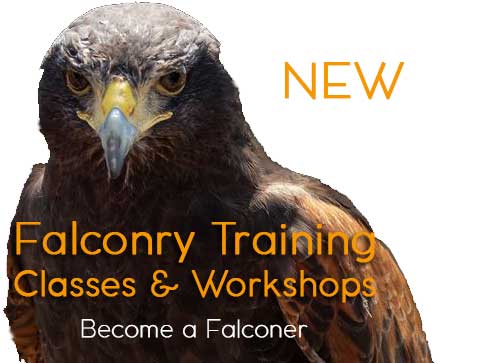What is Falconry?
Falconry, also known as hawking, is a sport that involves the use of trained birds of prey to hunt or pursue game and assist with bird control. It has been practiced for thousands of years across many cultures and continents. In falconry, the falconer trains a bird of prey to fly freely, hunt for wild game, and then return to the falconer. The process of training a bird for falconry is a lengthy one, requiring daily attention over many months. In this article we will discuss the history of falconry, what types of birds are commonly used, what it takes to become a falconer, and how falconry has become incorporated in the modern world for the purpose of bird control.
Historic Background
In the past, dating back as early as 4,000 BC, falconry was a popular sport and status symbol among the nobility. The type of bird you flew directly correlated to your social standing. For example, a king would fly a gyrfalcon, a prince would fly a peregrine falcon, a knight would fly a saker falcon, and women would fly quite smaller birds such as a merlin or a kestrel. Each bird of prey possesses varying skills when it comes to the different species they will predate and their plans of attack.
Falconry has a rich history and cultural significance in many societies around the world and it was even recognized as a UNESCO Intangible Cultural Heritage in 2010.
Falconry Today
Today, falconry is practiced by enthusiasts around the world, often as a form of wildlife conservation. It is considered a regulated sport, with potential falconers needing to obtain a license and meet knowledge requirements pertaining to bird physiology, housing (aviaries), and bird of prey healthcare.
The variety of birds used in falconry today is far more diverse than in the past; today, it includes falcons, hawks, eagles, and owls. Since each bird species has its own unique hunting techniques and behaviours, these characteristics often factor into the falconer's choice of bird. Although northern goshawks and peregrine falcons are considered the more traditional choice for a falconry bird, the most common birds flown today are the Harris’ hawk and the Red-tailed hawk. Harris’ hawks typically predate on small land animals such as rabbits and rodents while Red-tailed hawks have a far more diverse range of prey including rats, rabbits, squirrels, birds, and even snakes. Choosing which type of prey you are looking to hunt is key to what type of bird of prey you will train.
Falconry today is not only practiced for sport, but it is also utilized for bird control purposes. Due to the natural fear of predator birds by pest birds like gulls, pigeons, and sparrows, the use of falconry is an excellent technique for natural and humane bird control. At Hawkeye, we offer falconry based bird abatement services to assist in the removal of pest birds from commercial and industrial facilities. If you are experiencing issues with pest birds, contact Hawkeye today for a free inspection; we would be happy to find a solution that works for you.
Learning more about Falconry
If you are interested in practicing falconry, it is important to start by learning about the sport, its requirements, and its regulations. Many countries require you to study under a licensed falconer before you can obtain your own license. There are different levels of falconry licences including apprentice, general, and commercial. The type of licence you possess will correlate with your training, experience in the field, and number of years you’ve been practicing the sport. The type of licence you possess also indicates the amount of birds you may have in your possession amongst other factors. You’ll also need to learn about the care and handling of birds of prey, as they have very specific health and dietary needs. It's a significant commitment in terms of time and money, but many find it a rewarding way to connect with nature and these magnificent birds.
To get a glimpse of what it is like to work with a bird of prey, consider treating yourself to one of our Falconry Experiences - Hawks, Owls, and Eagles (depending on season). Or, if you want to take it further, we also offer Advanced Falconry Training/Classes in preparation for you to get your Falconer's License.













